It is not that much of an exaggeration to say that Ntsiki Biyela is a South African winemaking legend. She was the first female black winemaker and has been featured for example on CNN and on Forbes (and on BKWine Magazine previously). After many years as winemaker at Stellekaya in Stellenbosch Ntsiki Biyela has now launched her own winery and range of wines, under the name Aslina. BKWine Magazine’s LM Archer talked to Ntsiki and tells the story.
What would you do if you won a scholarship to study a program you knew nothing about, at a place where you didn’t speak the language?
Well, if you’re Kwa-Zulu Natal-born Ntsiki Biyela (En-tee-kee Bee-ye-la), you successfully attend University of Stellenbosch, learn Afrikaans, the regional dialect, and emerge as South Africa’s first black female winemaker.
The day of our interview, Biyela had already been up since 4:30 AM. No stranger to hard work, Biyela started her career at boutique winery Stellekaya as a junior winemaker after graduating from the University of Stellenbosch’s viticulture and enology program in 2004 on a bursary (scholarship) provided by South Africa Airways. At enrollment, she didn’t speak the local dialect, Afrikaans, nor had she ever tasted wine. But she learned.
At Stellekaya, Biyela quickly meteored to the top of her nation’s wine industry, winning South Africa’s prestigious Michelangelo award for her inaugural red blend, and Woman Winemaker of the Year in 2009.
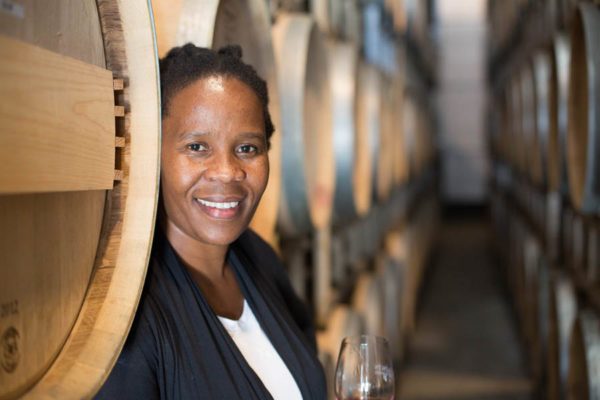
Recently, Biyela departed from Stellekaya to launch her own label Aslina, named after her grandmother, a major influence in her life. The Aslina label depicts an African calabash drinking gourd filled with grapes, the image an homage to both her native village and to her professional ‘home’ working in South Africa’s wine regions.
To appreciate Biyela’s wines, one must appreciate her love of red blends, particularly Bordeaux. Early in Biyela’s career, she worked harvests in both Bordeaux and Tuscany, and more recently participated in the prestigious Winemakers’ Collection at Bordeaux’s Chateau D’Arsac in 2013. This passion also drives her current collaboration through ethical wine importer Mika Bulmash’s Wine for the World and Napa Valley wine maker Helen Keplinger on a red blend project called Suo, which means “to stitch” or “to join” in Latin. Wine for the World showcases emerging talent worldwide and fosters cultural exchange through production of small-lot, hand-crafted wine projects like Suo.
Clearly, Ntsiki Biyela represents a vivid example of South Africa’s emerging wine industry – a woman comfortable straddling cultures, wine regions, and styles.
Tasting notes on wines will be forthcoming.
(This interview was conducted via Skype, and has been edited for clarity and continuity.)
You came to wine making having never tasted wine, nor speaking Afrikaans. Yet you’ve excelled at both. How has your native heritage informed your approach to winemaking?
Ntsiki Biyela: I’d say it’s been a combination of things – when there is no options to fail, to understand that if not this winemaking, there’s nothing. But also I always took from my grandmother her perseverance, ambition, and drive. She was always one of those people who always found a way forward.
When I go home, I’m not a winemaker. I’m a daughter, a child, a sister, a cousin. It’s important to stay grounded. They [my family] know what I do, but it ’s not the key thing. It’s once in a blue moon that we talk about my work.
You seem so alive when you’re in the vineyard. What’s it like to run your own winery?
Ntsiki Biyela: I love nature. It animates me. As a wine label owner, I currently rent a space to make my wine. But I also have had to take on more [of the administrative duties required to run a winery], which I find to be a soul killer. But I am trying to get help.
In addition to twelve years with Stellekaya and formation of your own label Aslina, you’ve also partnered with the organization Wine for the World on a project called Suo, a partnership with winemaker Helen Keplinger of Napa Valley, CA. How did the partnership happen? What was it like working on the project with Helen?
Ntsiki Biyela: Mika Bulmash, founder of Wine for the World, introduced winemakers from other parts of the world [like me] to winemakers in the US. Helen and I had to do a blend together. We did a second blend in the states. We both work with common varietals, like malbec, sangiovese, cabernet sauvignon, cabernet franc, and merlot.
What was interesting for me was when we got together as wine makers in the tasting room to create the blends – we were like kids who got to play – blending, tasting, commenting. Also, in California, winemaking is not that different – it’s the same product, just different approaches.
How has your time working vintages in other parts of the world such as Bordeaux and Tuscany, informed your farming and production techniques in South Africa?
Ntsiki Biyela: I was there [Bordeaux] in 2005, during my second year as winemaker. It was interesting to see what they do in Bordeaux, and see if [could] apply [anything] in South Africa. At end of the day, in both places, winemaking is winemaking – it’s the same as when you are cooking.
Most of the things I was doing anyway, like cold soak and punch down. But also I got an understanding of their challenges, like ripeness compared to ours.
I always think that we have difficulties in harvest in South Africa, because every year the harvest varies – until I did a harvest in 2013 in France, which was a nightmare. So I’ve never complained again!
Let’s talk terroir. Where does Aslina source its fruit? What choices do you make when choosing the fruit you use to make your wines? Do you have a favorite site? Anything else about the soils/microclimates that you work with that you’d like to share?
Ntsiki Biyela: We’re looking for cool climates for chardonnay. For reds, we look for warmer climates, like Stellenbosch. So you get the style, but things are not set in stone, then [you] see how you change within that.
We have so many wine growing regions in South Africa – all different – it’s what makes South African wines so exciting.
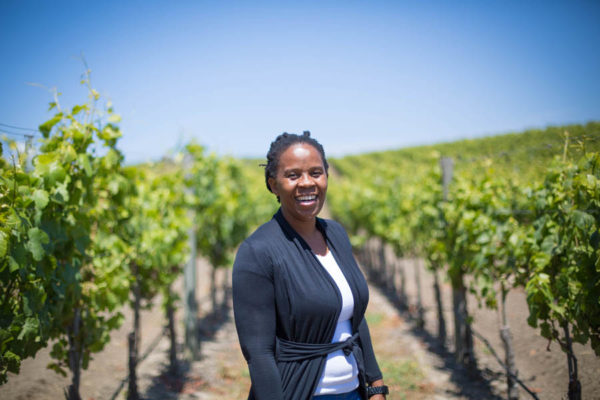
Who or what motivates you to keep going? Do you feel a responsibility to be a role model for other black women wine makers?
Ntsiki Biyela: The responsibility part doesn’t drive me. This thing of role model did stress me out at first. [It took me awhile to learn that] you don’t have to be perfect. To just be me, and let others pick up with what they need to be. What drives me is the passion and excitement around it, and the understanding of what I can and cannot do. That’s important.
Besides working in the vineyard and making wine, I also do wine tastings anonymously in the winery. People tasting the wine don’t know I’m also the wine maker, so they are more free and honest with their comments.
Anything else you’d care to share with readers about Aslina or about your future goals?
Ntsiki Biyela: My goals are now more about helping others fulfill their dreams while I’ m continuing to build [my own brand.]
I’ve been in the industry a long time. There is change, we always want it [change] to happen [all] at once. People [of diversity] are now slowly coming in. Worker conditions have changed, too – a recent documentary targeted one winery. If anyone had asked [other workers] at other wineries, they would have had different experiences.
If you’re a person who studies Old World vs. New World wines, South Africa has always been on its own – the best of both worlds. But in the market, we are like a child that has no self-esteem. Importers want to tell you what price to pay. They don’t do that with other regions. We always have that struggle, too.
Finally, if your experience as the first female black wine maker in South Africa has taught you anything, it’s taught you…?
Ntsiki Biyela: What it has taught me is that it’s not about the labeling – its about who you are that drives you to where you want to be. It’s who you are, where you’ve come from – I’ve learned to relate to anyone from anywhere across the board, and with that came the understanding that drives me to be where I want to be.
Read what we wrote on BKWine Magazine previously on Ntsiki Biyela: Ntsiki Biyela winemaker at Stellekaya in Stellenbosch [E] – BKWine TV
LM Archer is a freelance writer based in Santa Cruz, California. She is Francophile who considers wine an art and Burgundy the centre of the universe. She is the founder and editor of binNotes | redThread.
[box type=”info” style=”rounded” border=”full”]This is just one of a sea of talented winemakers that are today working in South Africa. Come and discover the fantastic wines of this exciting country on a wine tour to South Africa with BKWine.
Travel to the world’s wine regions with the wine experts and the specialist in wine tours.
Wine tours by the experts for the wine lover. BKWine wine tours.[/box]
Here is a video interview from a few years ago when she was still at Stellekaya:


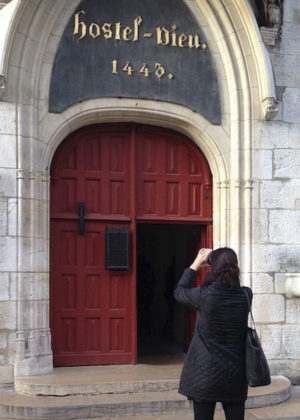
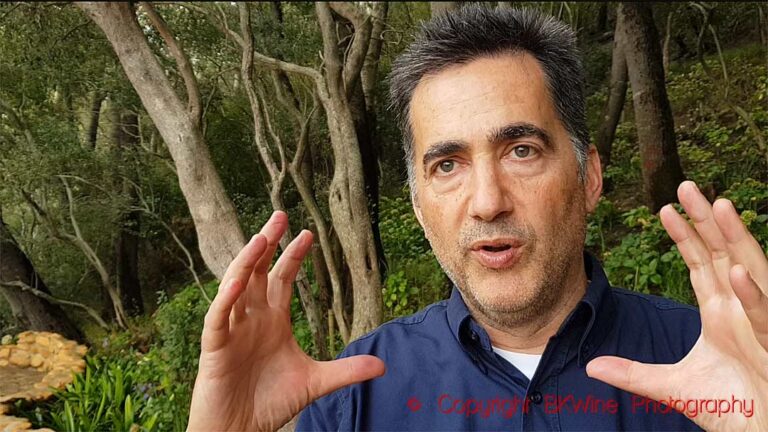
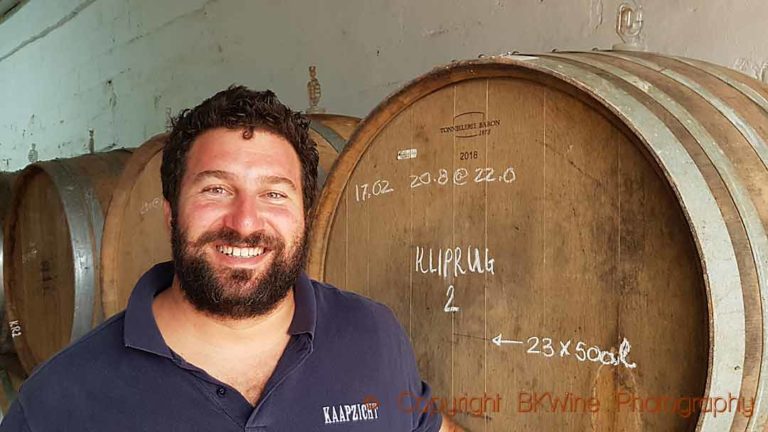
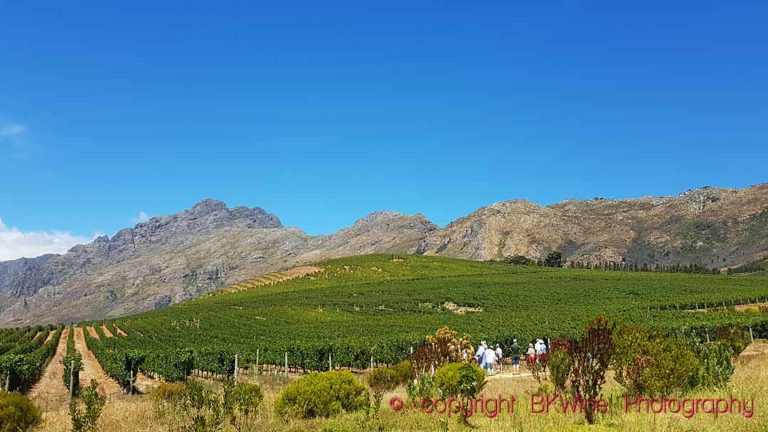




3 Responses
We are pouring her wine tonight at my wine shop and I must say, this interview was very helpful in better understanding her as a winemaker. Excited to spread the word of her wine. Cheers.
Glad you like it.
Ditto! Hope the wine pouring was a success, Whitney.